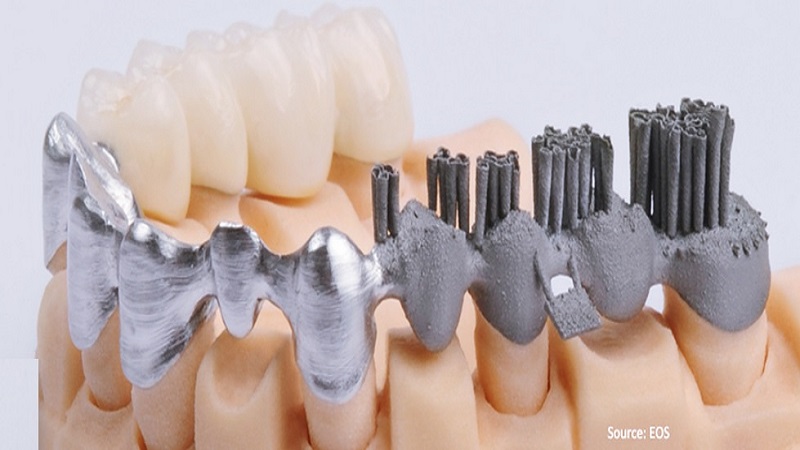
A group of researchers from the Sri Rajiv Gandhi College of Dental Sciences & Hospital in Bangalore, India evaluated the marginal accuracy of Cobalt-Chromium copings (thin covering of the tooth’s crown portion) fabricated using DMLS, computer-aided milling, traditional casting, and ringless casting and comparatively analyze the marginal discrepancy. They used typodont resin model made of silicone impression material and 40 copings, for which they used 3D laser scanner from 3Shape to obtain an indirect impression of the tooth model, and then used the data to design the coping in 3Shape’s CAD software program, before they were 3D printed on an EOSINT M 270 3D printer from EOS.
